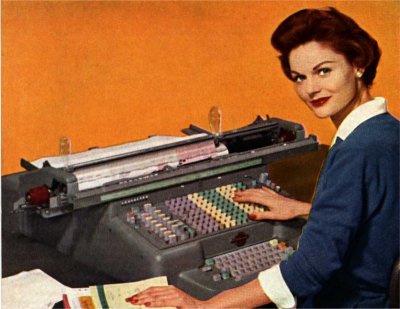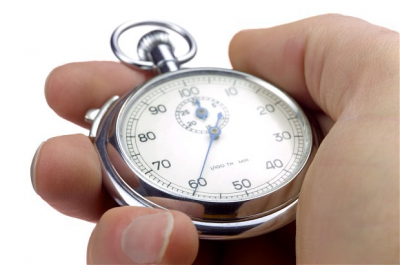Why did PayPal enter the crypto-space?
In October 2020, payments giant PayPal announced that it will allow its 346 million users to buy and spend bitcoin and a handful of other major cryptocurrencies. Is this really the way of adoption that the crypto community would like to see? It is not so obvious and it depends on the ideology of individuals. The math seems to be simple. The big payment player entered the crypto ecosystem so it means adoption and the adoption will bring the rising prices of cryptocurrencies. Maybe the math is not so straightforward and maybe it is not only about the price.
PayPal operates a worldwide online payment system that supports online money transfers and serves as an electronic alternative to traditional paper methods. The company operates as a payment processor for online vendors, auction sites, and many other commercial users, for which it charges fees in exchange for some benefits. You can find a few PayPal fee calculators on the internet and if you try them you can find how much the payment giant charges. For example, if you send a $1000 transaction in the USA you will have to pay a fee of nearly $30. If you send €1,000 in Germany, you will have to pay a fee of over €25. It seems to be a great business model.
Blockchain technology has the potential to compete with the traditional payment networks. Public blockchain networks like Cardano and Bitcoin are naturally global and everybody can use them. Not for free, though. Transaction fees must always be paid. PayPal naturally wants to keep its position in the competitive environment of the digital payment business. It becomes obvious that blockchain technology will stay here with us and we can expect changes in the whole financial world. Nobody knows what we can expect so it is good to be prepared for everything. Regarding payments, cryptocurrencies have two major disadvantages that prevent people from using them on a daily basis. Volatility and often low scalability. PayPal is able to solve the second disadvantage. The result of low scalability is that transactions are processed for a very long time and they are often very expensive. We can see many other services that are willing to give you a payment card that allows you to pay by crypto. PayPal is just another one that allows you to create a wallet and buy a few selected cryptocurrencies that can be used for payments later. It will be a centralized service, you will not keep private keys in your hands or you will not be even able to send crypto to another crypto wallet. What PayPal allows you to do is to pay quickly. Centralized services are fast. Why does PayPal do it? We hope you know that. PayPal wants to collect transaction fees and thus keep its own position.
Problems with PayPal
People using PayPal pose a big problem for cryptocurrencies regarding the sustainability of economic models. Besides the decreasing security budget, it is often planned that the collection of transaction fees will be the major income for rewarding people that keeps the network running. Public networks have to pay for their security. The more money is collected the more secure a network is since it is more expensive to attack it. It is necessary to pay for honest acting. Collecting transaction fees is a business. In the case of PayPal, the profit is distributed to a few company owners. In the case of blockchain, the profit is distributed to many entities that are responsible for operating the network. In the case of a PoW network like Bitcoin, transaction fees are distributed proportionally to miners and pool operators. In the case of Cardano, transaction fees are proportionally distributed to all stake-holders that have delegated ADA coins to a pool and thus take part in the decentralization and security of the network. In this perspective, PayPal can be considered as an enemy that wants to take over the business with crypto transactions. If people started to pay by PayPal then there would be significantly less on-chain transactions. It would mean that the transaction fees would have to be tremendously high or the security and decentralization of the networks could decrease.
Cryptocurrency projects need to improve scalability if their teams wish to keep their networks decentralized and independent. The entrance of PayPal can be perceived as a warning that the research and development must be faster. The majority of people might not care about ideology and they can be fine with using centralized services for decentralized cryptocurrencies. We need to build our own decentralized infrastructure to be independent of companies like PayPal. It is really necessary since we are responsible for the source code and we can decide about important things like privacy, censorship resistance, etc. PayPal is a private, for-profit, and regulated company. Do not expect that it will become a part of the decentralization revolution. PayPal wallets will be controlled by the company including the private keys. Thus, when people would let the company control their private keys, PayPal could become a new centralized crypto bank. We need to teach people that they have to be responsible for their wealth and we need to create decentralized banks. The decentralization concept will win only if it is generally understood and adopted. People must understand the differences between centralization and decentralization with all consequences not only to them but also to the economical models of cryptocurrency projects.
Cardano does not need PayPal
Decentralization is a scale. When scalability is needed then it is difficult to achieve a solid decentralization. The IOG team has been working on an infrastructure that will be decentralized and scalable at the same time. Hydra, a Cardano second-layer solution, will be able to substitute traditional payment networks. Cardano will not need PayPal for providing a fast transactional network. The payment business will remain in the hands of Cardano stake-holders and node operators.
PayPal is able to resolve scalability but there is still the issue with volatility. We do not expect that people will start paying with volatile cryptocurrencies in the foreseeable future. Stable coins will probably dominate the world soon and the incoming central bank digital currencies (CBDC) will just fasten the process.
The payment business is lucrative but cryptocurrencies are not only about it. Smart contracts will bring another level of innovations regarding trust and it is expected that many other financial services will be disrupted. PayPal is able to process transactions and the trust level is based on the current legal system. Smart contracts can to some extent substitute also the legal system. It is very useful mainly in cross-border payments and services. Legal systems in the two countries can be different. A smart contract is able to create an agreement that will be fair to both parties and blockchain is able to intermediate trust. Thus, legal systems will not be necessary to resolve a possible conflict. Blockchain and its infrastructure for the smart contract technology will be able to substitute the current financial services on the global level. PayPal can hardly compete with this. It is about the distribution of the trust, in other words, about decentralization. For example, have you ever considered taking a loan from somebody from abroad? It is not currently so usual. Hopefully, Cardano can provide this type of service quite easily within a few years. Transactions within smart contracts must remain in the control of the blockchain infrastructure. As we said, PayPal is not able to compete with this.
Summary
More public attention is focused on cryptocurrencies thanks to PayPal. It is maybe the only positive aspect. In the long term, the influence of PayPal on the crypto could be negative. It can seem that fast transactions can help to faster adoption of cryptocurrencies but it is not true. The real adoption is about freedom. It is about the ability to create their own crypto wallet and keep private keys. Teams must be able to deliver usable and scalable infrastructures. Cryptocurrencies are not only about holding and waiting. If we wait, private centralized services will come and try to provide the infrastructure that will be fast and mainly cheap in the beginning. Cardano will have an infrastructure that will be fast and the high transaction fees will become a part of history. Cardano will give PayPal no chance.
Source: Cardano does not need PayPal

 How Cardano can help in Ethiopia, El Salvador and other developing countries
How Cardano can help in Ethiopia, El Salvador and other developing countries What is the real use-case of Cardano?
What is the real use-case of Cardano? Interview with MuesliSwap
Interview with MuesliSwap Cardano is not just a Wallet
Cardano is not just a Wallet